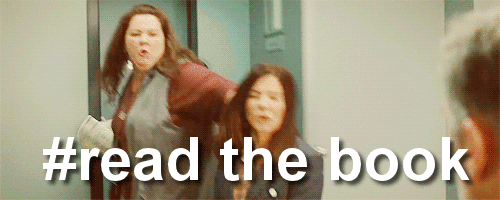If you’ve read a book recently (which, I’m assuming you have if you’re interested in this post), then you’ve inevitably noticed that in the back of most books, the author will ask you to write an honest review on the website where you purchased their book. It seems like a simple request, asking for a star-rating and a few sentences on how you felt about the work, but in reality, writing a review is challenging. Most of the time, books reach us on personal levels and really bring out a lot of emotions. Tapping into that and conveying a review that’s worthy is difficult.
It may not be that big of a deal for the average consumer and reader, as usually a short, simple review will do the trick. However, we now live in a world where the reading community is backed very heavily on social. Because of that, countless book blogs have emerged, and most of those blogs pride themselves on their top service: book reviews.
This post is for you, book bloggers. Others who wish to learn this trick for personal purposes, by all means, please continue reading. But, I’m aiming this toward my passionate readers, my bloganistas, my can’t-get-enough, I-read-too-much peeps who love reading to such an extreme that they dedicate hours of their personal lives to blog about books and communicate with others who have the same passion.
As an author and as someone who takes writing reviews seriously myself, I’ve seen it all. I’ve seen amazing reviews that made me one-click a book so quickly I nearly jammed my finger and I’ve seen reviews that were so poorly done I was shocked to see it was written by a “book blogger”. Reviews are everywhere now, and as a blogger, you have to figure out a way to entice your fans and convey your true opinions. Here’s my advice on how you can write a kick ass review that is actually worth reading.
DON’T SUMMARIZE

One of the top mistakes I see made by reviewers is using their review to say the exact same thing the synopsis says. There’s simply no reason to do this, and if you lead off your review in that manner, most people will lose interest. If you feel the reader may not know the background or that they need to know a general outline, refer to the synopsis. Include it BEFORE the review on your blog page. As for reviews on actual websites, there really is no need since the synopsis is just a few scrolls up from where your review is listed. My advice is to skip this all together. Yes, you can have little snippets of what happens in your review, but don’t use the entire length to simply restate what’s already been said. In my opinion, this is a cop out, and not a true review.
BE MINDFUL OF THE LENGTH

I love long reviews. I really, really do. But, I love them because I’m an author and, hell, let’s be honest – I like to hear people say nice things about me and my work. For most readers, a long review will put them off. Now, this doesn’t mean you should only write a few sentences. The key here is finding the perfect medium. My advice would be to keep your review around 500-600 words and definitely don’t go over 800 unless there’s a legitimate reason. Short reviews are infuriating for authors who give their work away for free in exchange for reviews and long reviews are usually never read by anyone but the author. You have to find that balance that will attract those looking for a quick opinion as well as appease those who put so much into the work.
BE HONEST

This should go without saying, but a review is your word. It’s not only going to speak volumes about the book you’re reviewing, but also about you as an individual and about the blog you represent. If you write an amazing review for a book that someone picks up and ends up not liking, they’ll most likely be more hesitant to read your other five-star review books because of your difference in taste. The same goes for having a lot of negative reviews. Be honest, of course, but don’t be brutal. You don’t want to get the reputation for being a bully. If you have to leave a low-star review, go into detail why you had to do so and be kind. You always need to keep in mind that many hands went into creating that piece of art and whether you liked it or not, it’s not okay to be degrading.
REVIEW THE BOOK

Duh, right? But seriously, go read through some reviews of your favorite book and you’d be surprised how many of them actually forget to do this. As I mentioned before, don’t just summarize and don’t just say it was a “great story and totally worth reading”. My best advice here is to always ask WHY? If you write out a sentence about a book, ask yourself why you feel that way and then explain. For instance, “This book was amazing.” is good, but “This book was amazing. The writing was so powerful and the imagery was beautiful. I felt like I knew the characters personally and by the end, I was totally in love.” is better. Go into detail. Talk about what makes a book great – characters, writing style, plot and plot twists, originality, etc. Give credit where credit is due and do your best not to be vague. The more detail you can provide, the better.
USE EMOTIONS AND EXAMPLES

Going along with the above point, don’t just explain why – show why. As you’re reading, take the time to highlight your favorite passages – whether they are quotes from a character or just a powerful scene. When writing your review, refer back to those highlights and cite them throughout your review to illustrate your points. You can also tap into emotions. Don’t just say you couldn’t put the book down, make it personal – maybe you were so engrossed in reading that you missed a bus stop or your husband called you out for ignoring him. Something funny or relatable will hit home with those reading your review, so make it fun and don’t be afraid to tap into emotions. If you cried, tell them. If you were angry, tell them that, too. This especially goes for bad reviews. If you’re giving a book a one or two-star review, you owe it to the author and potential readers to show them why you feel that way. Whether it’s due to bad grammer, plot holes, or a writing style you didn’t enjoy, be sure to list it. Believe it or not, authors use reviews to get better in future work and readers are more likely to read bad reviews to decide whether they should purchase a book or not. The bottom line is – you have the book, so use it. You can really liven up your review and up your credibility, too.
WRITE WITH IMPACT

You know when you’re watching movie trailers or when you see ads for books and you see brief excerpts from critic reviews? Write your review with that in mind. Think to yourself, “If I was going to be quoted in a book trailer, what is the one thing I’d want readers to know?” Then, make those punch lines. Start your book review with them, sprinkle them throughout, and DEFINITELY end with them. You don’t have to be an author to do this. Simply pull up Thesaurus.com and transform your words. Write an impactful review and you just may be quoted by the author. At the very least, you will entice your fans enough to actually give a damn what the rest of the review says. One of my favorite reviews for Song Chaser was written by Kellee Fabre, one of my beta readers, and she had so many punch line worthy quotes. My favorite? She said Song Chaser is, “a butterfly-inducing and achingly beautiful story of figuring out what is right for you and fighting to make it yours.” Now, tell me that doesn’t make you want to read more? The key is finding powerful language and using it to your advantage to really take your review to the next level.
AND, FOR EXTRA CREDIT – LINK, LINK, LINK

This doesn’t really apply to reviews written on retail websites, but for your personal blog and/or social sites like Facebook and Goodreads, always remember to link to the book you’re reviewing. You should, at the very least, link to one retailer website. If you want to go all out, include as many retailer websites as you can and add in Goodreads for good measure. If you get signed up with a promotions company (my favorite is Southern Belle Book Blog Promotions), they usually send you all that info in a kit so you can easily add it to your review. This is a great way to up your credibility and further back your opinions on the book. After all, if you’re confident enough to link them to the book, it’s clear you want them to check it out for themselves and not just take your word for it.
Writing reviews is a craft, and like every craft – it takes practice. I hope these little tips will help you next time you sit down to review a book. Remember, as a blogger, you are the voice for many readers and authors. You receive work for free in exchange for reviews, so make sure your reviews are actually worth making that trade. And, when you take the time to write an awesome review and it happens to get the most likes on Goodreads and Amazon and appears at the top of the reviews, you can take comfort in knowing you’re a #boss. Step off, haters.

Stay beautiful,
K.S.

